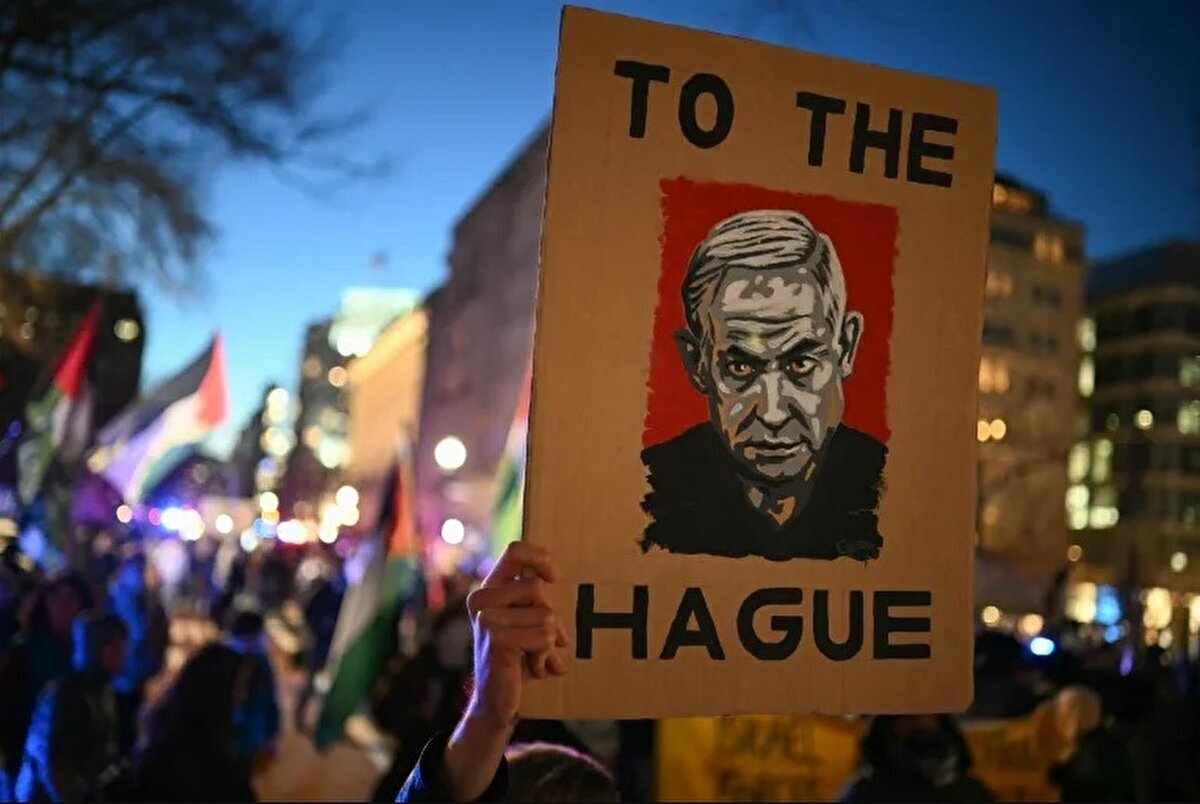The Last Breaths of Israel's Ailing Prime Minister and Cabinet
TEHRAN (Defapress) - The security cabinet of the Zionist regime has once again voted to expand military operations and the complete occupation of Gaza. This decision, directly proposed and pursued by Benjamin Netanyahu, reveals his maneuvers in domestic politics more than it relies on a smart military strategy. While the world watches the devastation in Gaza with eyes full of anger and sorrow, Netanyahu, through this move, not only fuels the flames of war but also builds his political survival on the suffering of the defenseless people of Gaza.

With Netanyahu’s decision to besiege and occupy Gaza City, the humanitarian catastrophe deepens. This plan, approved despite strong opposition from the Zionist regime’s military commanders, ignores serious warnings about the escalation of the humanitarian crisis and the endangerment of the lives of the remaining Zionist hostages in Gaza. The regime’s army, exhausted and worn out after two years of continuous war, warns that this operation will turn Gaza into a deadly trap for Israeli soldiers.
But why does Netanyahu insist on such a decision? The answer lies in the depths of the regime’s internal political crisis. Netanyahu, who has maintained power through an alliance with the far-right faction led by Itamar Ben-Gvir and Bezalel Smotrich, has turned war into a tool for his survival. These extremist partners, by repeatedly threatening to dissolve the cabinet, have obstructed ceasefire negotiations. Driven by the dream of rebuilding Zionist settlements in Gaza and ultimately annexing the strip to the occupied territories, they demand its complete occupation.
In an interview with Fox News, Netanyahu declared that the Israeli army would leave Gaza after the destruction of Hamas. This decision has not only enraged his far-right partners but also faced fierce opposition from the regime’s military. During the 10-hour session of the regime’s security cabinet, Chief of Staff Eyal Zamir explicitly warned that a return to the policy of occupation would endanger the lives of hostages and soldiers and further exhaust the army.
These warnings reflect public opinion within the regime. Numerous polls show that the majority of settlers demand a ceasefire that would return the hostages and end the war. But Netanyahu, trapped in a bubble of bloodlust and selfishness, ignores these voices. Analysts and his political opponents attribute this behavior to his desperate need for survival; for Netanyahu, war is not a strategic necessity but a shield against his downfall.
On the international stage, this decision has pushed the Zionist regime into unprecedented isolation. Even with the unconditional support of the Trump-led White House, which has given Netanyahu complete freedom of action, the famine and starvation crisis in Gaza has destroyed the global legitimacy of the war. Reactions to this decision were swift and decisive. Germany, the regime’s second-largest strategic ally, has halted the export of certain military weapons to Israel, setting the stage for other European countries to reduce their relations.
Netanyahu’s plan satisfies none of the involved parties, including foreign allies, military commanders, domestic public opinion, or even his extremist partners. The only beneficiary of this decision is Netanyahu himself. Through this military maneuver, he seeks to buy time to escape the collapse of his coalition cabinet and cling to power.
Ultimately, Netanyahu’s decision is a humiliating defeat in both the military and political arenas. His ailing government is gasping its last breaths. If Netanyahu fails to balance internal and external pressures, this foolish maneuver may lead not to his salvation but to his downfall. The world, upon closer scrutiny, must realize that the Gaza war is no longer just a military conflict but an arena for power struggles among the internal factions of the Zionist regime.
